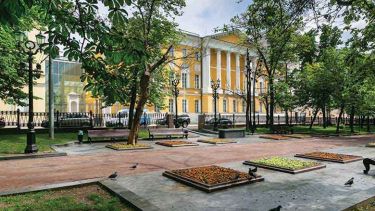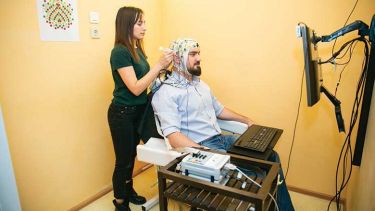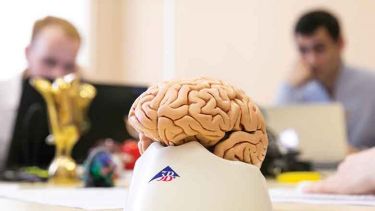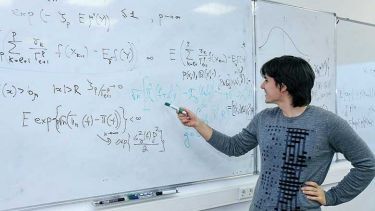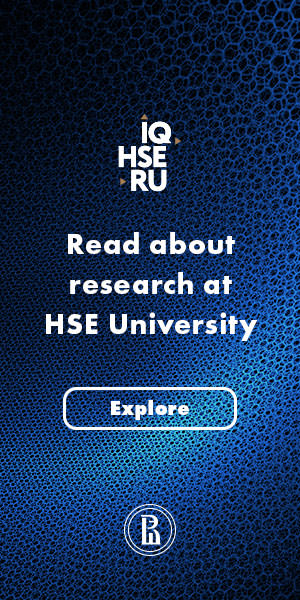
Source:
HSE University

HSE University is helping to inform education policy in Russia by combining its own research into schools with international data and emerging edtech platforms
Since the Laboratory of Educational Policy Analysis was founded in HSE University’s Institute of Education in 2011, it has tackled some of the most pressing problems facing policymakers in Russian education.
For the past three years, those problems have been distilled into two questions, says Andrey Zakharov (pictured, below), the laboratory head: how to improve student outcomes and how to reduce inequality of educational opportunities. “We’ve been focusing on the structure of social inequality in education, how it’s produced and what the mechanisms are to help low social-class students to improve,” he explains.
During that time, researchers at the laboratory used a range of approaches to examine links between education and social inequality, including taking part in the Trajectories in Education and Careers longitudinal study carried out by HSE’s Institute of Education; drawing on international datasets; and going into schools to do interviews and observe lessons.
Among the laboratory’s recent projects was a large-scale study targeting maths education. Researchers looked at 30 schools in lower-, middle- and upper-class areas to investigate how schools addressed gaps in social class and influenced students’ choice of educational trajectories, how teachers differentiated students and how they worked with those from different social classes and ability groups.
The study revealed some interesting findings about how principals saw themselves and their schools’ missions. “In many situations, principals defined their own role as school administrators…[but] there were other schools where principals regarded themselves more like ‘teachers of the teachers’, or ‘educational leaders’ as they are described in modern Western literature,” says Professor Zakharov.
Principals leading schools filled with lower- and middle-class students were more likely to see their mission as “to help students to become good moral people or good citizens, but not so much to help students increase their outcomes, provide social mobility or reach higher education”. At these schools, lower social-class pupils were often encouraged to continue their education with vocational training or head into the labour market. In contrast, schools in wealthier areas were focused on encouraging students into higher education, boosting social mobility and “providing them with higher chances in life”, all of which, says Professor Zakharov, exacerbate existing inequality.
One of the aims of such studies is to contrast approaches taken in different educational settings and determine which are effective in boosting the prospects of the least-advantaged children. As well as publishing academic papers, the researchers in the laboratory also produce briefings that are read by policymakers.
For another project, the researchers worked with Yandex – informally known as the “Russian Google” – to determine if the business’ new electronic textbook could help to improve student outcomes. The laboratory ran a randomised controlled trial across more than 340 schools in two Russian regions. A total of 6,253 students were divided into three cohorts, with some using the electronic textbook for 25-30 minutes (10 online items) a week, some twice – more intensively – and some not at all.
Professor Zakharov says the results showed that the electronic textbook could help to improve outcomes for lower-achieving students and narrow the attainment gap. “We found it had a positive effect on student outcomes – and, what is more interesting, we saw that positive effect especially among low-achieving students.”
More precisely, the studies showed that moderate use of the electronic textbook improved students’ performance and helped hold students’ interest in maths and school in general – but that more intensive use did not lead to further improvements.
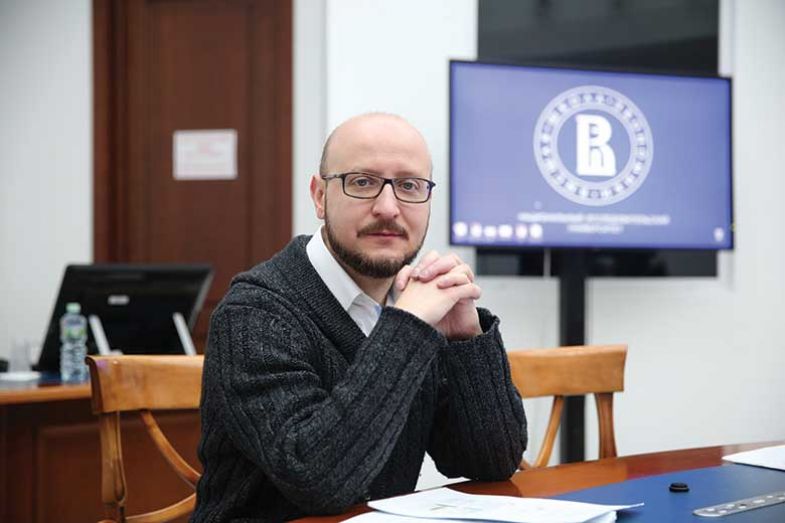
As well as studying Russia’s domestic education system, the researchers carry out comparative studies of domestic educational outcomes and those in other countries, drawing on international data such as the OECD’s Programme for International Student Assessment. From looking at 15 years of data from Pisa – a ranking based on 15-year-olds’ test scores in core subjects – they observed that Russia’s performance in maths and reading increased from 2010-2015.
By breaking down the demographics of the students whose scores contributed to the ranking, the researchers also found patterns that showed the inequality in social outcomes had decreased in the same time frame.
HSE’s researchers have looked at ways to learn from other countries’ Pisa scores, by testing various expert theories on what works in education policy against the data. In Brazil, for example, the research found evidence that more proactive state interventions to promote better teaching in local school districts contributed to higher student test scores state-wide. These findings can also inform future studies. “With better data in Russia on student outcomes at the state level, it would be possible to do a similar study in Russia,” says Professor Zakharov.
To build on its work, the LEPA will shift its approach for the next few years to concentrate on causal analysis, with a focus on experimental studies, he adds. “We will be answering the question: what works in school? For instance, we will be dealing more in experimental studies, or studies using quasi-experimental design, trying to find ways to increase students’ academic and non-academic outcomes.”
The researchers will aim to produce evidence for decision makers on how to “improve and equalise students’ educational outcomes”.
Among other things, they will consider whether students are being effectively prepared for the changing global economy and working in the digital age. They will also spend more time researching e-learning platforms and technology in education, including gamification. “That’s a hot topic now in Russian education policy and lots of money is likely to be spent on that, which is a very good reason to answer the question as to whether it affects student outcomes or not,” says Professor Zakharov.
The researchers will look at not only educational outcomes but also the impact of different forms of edtech on students’ social, emotional and other skills, and whether using them influences students’ education trajectories.
Russia has less of a tradition of experimental studies examining what works in education than some other countries, but Professor Zakharov aims to have the laboratory help fill that gap.
“That could have a great impact on educational policy because – as with policy in all the other social spheres – it should be evidence based,” he says.
Find out more about HSE University

